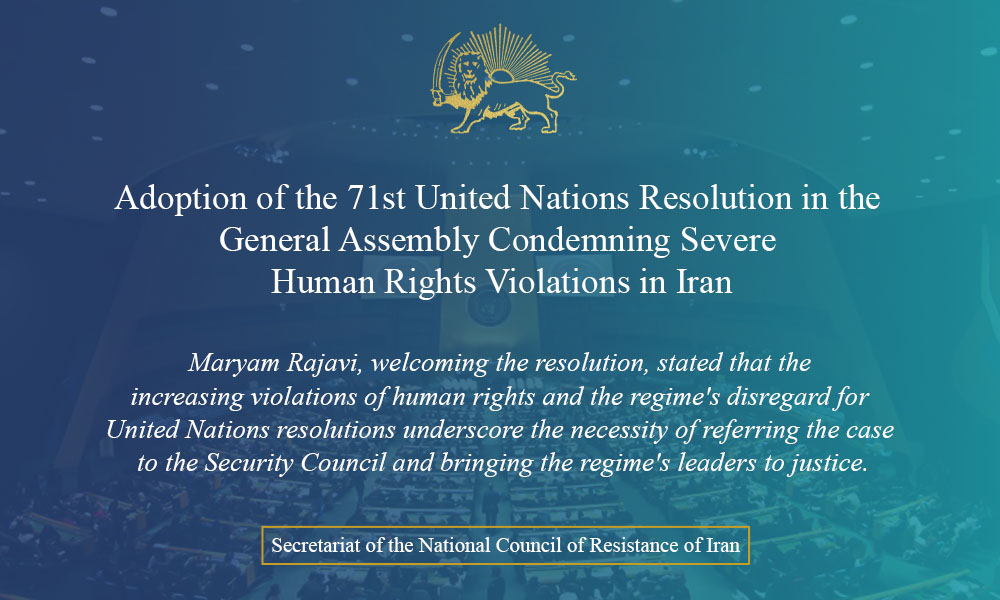Adoption of the 71st United Nations Resolution in the General Assembly Condemning Severe Human Rights Violations in Iran

Mrs. Maryam Rajavi, welcoming the resolution, stated that the increasing violations of human rights and the regime’s disregard for United Nations resolutions underscore the necessity of referring the case to the Security Council and bringing the regime’s leaders to justice.
Today, December 17, 2024, the United Nations General Assembly adopted its 71st resolution condemning the widespread and systematic human rights violations by the ruling regime in Iran. The resolution was passed with 80 votes in favor and 27 against. It strongly condemns the unrestrained and unlawful use of the death penalty, arbitrary arrests, torture, suppression of peaceful protests, and severe discrimination against women, ethnic and religious minorities, and even minors. The resolution describes these measures as tools for political repression and calls on the regime to immediately halt these executions—many of which are carried out based on forced confessions without fair trials—and to suspend all death sentences.
The resolution expresses concern over the deplorable conditions in Iranian prisons, including the deliberate restrictions on prisoners’ access to medical care, clean drinking water, and contact with their families, which are sometimes only granted in exchange for forced confessions or under other forms of pressure. It also strongly condemns the use of sexual and gender-based violence against prisoners, which is a blatant violation of international laws, and demands that the regime immediately cease these inhumane practices.
The resolution denounces the severe and targeted repression of women and girls in Iran, emphasizing that such laws are contrary to international standards and fundamental human rights principles.
Mrs. Maryam Rajavi, the President-elect of the National Council of Resistance of Iran (NCRI), welcomed the adoption of this resolution, emphasizing that the document reflects only a small portion of the regime’s extensive crimes. She added that the Iranian regime, through excessive executions and brutal repression, seeks to prevent public protests. On November 30, the regime’s judiciary sentenced six political prisoners to death on charges of membership in the People’s Mojahedin Organization of Iran (PMOI/MEK). Additionally, four others have been sentenced to death on similar charges in recent months.
She added that since the inauguration of the regime’s new president, approximately 625 prisoners, including 22 women, have been executed. Massoud Pezeshkian has personally and publicly defended these brutal executions.
Mrs. Rajavi stated that the escalating human rights violations in Iran and the regime’s disregard for UN resolutions make the referral of the regime’s crimes to the United Nations Security Council even more urgent. Ali Khamenei and other regime leaders must be brought to justice for four decades of crimes against humanity and genocide.
Secretariat of the National Council of Resistance of Iran (NCRI)
17 December 2024

